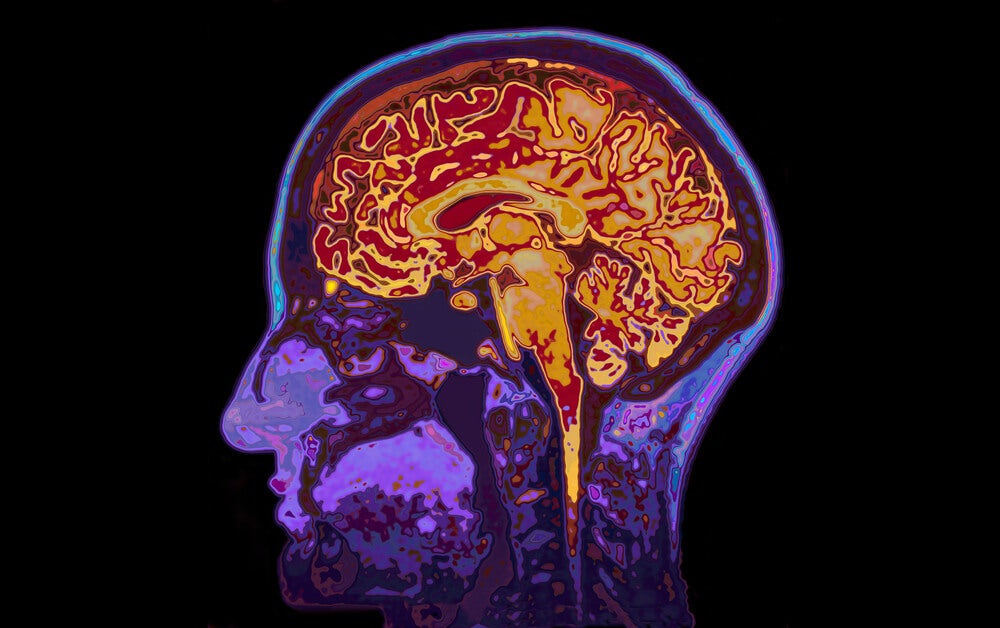The way anxiety affects the brain can be summed up in one word: toxic, although this psychological reality is nothing more than a natural emotion when we perceive a threat, many of our concerns are unfounded and even obsessive, leading us to states of great exhaustion. where we lose energy and motivation.
What we know very well from a psychological point of view is that the effects of worrying too much can be even more dangerous than what really concerns us, sounds like a word game, but goes further.
- When we are in these states where stress intensifies and deforms in every detail.
- Everything finally gets out of control.
- We make the worst decisions and emotional distress increases.
For example, the more we are obsessed with our poor sleep quality, the more insomnia we have, the more we care about being efficient and perfect in our work, the more mistakes we make.
In addition, if we worry too much about the possibility of our partner leaving us, we create situations in which the other person feels more pressured and uncomfortable.
Thus, the more pressure we generate in our minds, the worse our brains will react, we will exhaust all your resources, we will have more memory problems and we will feel exhausted. Due to stress biology, the list of effects associated with stress. excessive anxiety is immense.
“Tomorrow has two handles; Can we handle it with the anxiety cycle or the silent cycle?. – Henry Ward Beeche-
The way anxiety affects the brain is more intense than we think
Neuroscientists like Dr. Joseph LeDoux of New York University point out that the impact of this dimension is so severe because people generally don’t know how to care healthily. We have a curious tendency to push almost everything to the limit. End.
However, they also point to another factor that can exempt us from some of the blame, our brain is programmed to worry first and think later, that is, our emotional system, and in particular our brain amygdala, are the first to detect a threat and activate an emotion in us.
Instantly neurotransmitters such as dopamine are released to generate activation and nervousness, subsequently the limbic system stimulates the cerebral cortex to notify the superior mental structures.
The purpose of this? Encourage him to take control, to use logical reasoning to regulate this fear, this sense of vigilance.
Dr. LeDoux reminds us that in human beings emotions have more power than reason, something like this causes the anxieties and anguish mazes that we often face to take control of our minds.
The way anxiety affects the brain is therefore very intense and the effects are:
What is psychological pain?Is it different from physical pain?Yes, but is this difference really quite limited Is psychological pain essentially suffering, exhaustion, negativity, discouragement?
In an anxious brain dominated by constant worry, the amygdala controls us, makes us see dangers where there are no dangers, everything is threat, we suspect everything and everything generates fear.
Its hyperstimulation affects the cerebral cortex, reducing its activity, so we’re not seeing things more calmly and balancedly.
In addition, the amygdala activates several areas of brain pain, such as the anterior cingulate cortex, thus intensifying discomfort.
What do we mean when we talk about cognitive processes? When anxiety intensely affects the brain because we’ve been attached to certain thoughts for weeks or months, we may begin to notice the following:
In fact, the key is not to stop worrying, the answer is to learn to take better care. Otherwise, as a study conducted at the University of Cambridge by Dr. Ernest Paulesu explains, we run the risk of developing a widespread anxiety disorder.
To achieve this, to learn how to take better care, we must remember the advice of the eminent psychologist Albert Ellis, let us think for a moment:
In conclusion, knowing how anxiety affects the brain, we learn to be more proactive, avoid falling into these cycles of suffering, and use healthier and more reasonable approaches, in case we are unable to contact specialist professionals.

